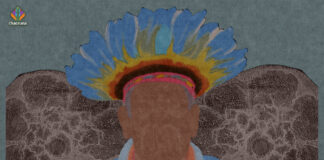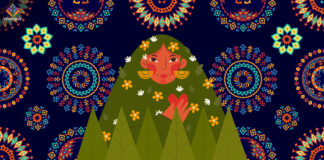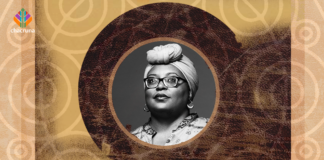Yagé Encounters
This excerpt from the book Palabra de remedio y otras historias de yagé (Word of Remedy and other Yagé Stories), by Carlos Miguel Gómez, is a narrative example of the intercultural relationships and practices that have occurred surrounding the historical use of Yagé, which is a sacred brew, better known as “ayahuasca” in Amazonian culture.
Addressing Abuse and Repair: An Open Letter to the Psychedelic Community
This community letter is written in response to recent allegations that have been made regarding abuse of power by therapists. In the letter there is a discussion surrounding what abuses of power entail, the repercussions of these types of situations, steps that can and must be taken to ensure an ethical future for psychedelic practice, and resources in regards to these situations.
Can Psychedelics Promote Social Justice and Change the World?
Through an understanding of significant histories, social justice issues, and ideas presented by psychedelic thought leaders such as Aldous Huxley and Humphrey Osmond, this anthology focuses on the potentials of psychedelics in providing insight to individuals and the collective whole so that we may make an attempt at a social justice revolution and work through inequalities more thoroughly.
Psychedelic Justice: Creating a Socially Just Psychedelic Renaissance
NiCole T. Buchanan uses the new Chacruna anthology, Psychedelic Justice: Creating a Socially Just Psychedelic Renaissance, edited by Beatriz C. Labate and Clancy Cavnar, to reflect upon the nuance and meaning of the term “psychedelic justice.” For Buchan-nan, psychedelic justice is of increasing importance as we see psychedelics gain wide-spread acceptance and recognition for their radical healing potentials in that with social justice in mind we have the ability to address intersectionality, and dismantle multi-generational paradigms of op-pression.
Broken Spears: The Impact of Colonialism on the Aztec Empire
On the 500th year commemoration of the fall of Mexico-Tenochtitlán, this article recounts the destruction of the Aztec empire. This history is often overlooked when discussing the use of sacred plants today. We reflect on these roots as a way to understand how cycles of colonization have affected indigenous peoples and their traditions.
Mestizo Identity and Decolonial Psychedelic Futures
There is not a soul alive today who has not been infected by colonialism, and as people infected with the sickness of coloniality, we can reproduce colonial harm. Mestizos, descendents of Indigenous, African, and settler origins, have been weaponized by colonial hierarchies to further disenfranchise Indigenous and African-descended people. In our journeys toward healing from generational trauma as descendents of colonization, a decolonial praxis to disengage from colonial attitudes must include solidarity with and respect for Indigenous sovereignty.
Creating Communities of Healing with Fireside Project Co-Founder Hanifa Nayo Washington
Sean Lawlor interviews Hanifa Nayo Washington, energy healer, Reiki practitioner, and co-founder of Fireside Project, the psychedelic peer support line, about cultivating beloved community, systems of oppression in the psychedelic space, Burning Man, building trust, reducing harm, and creating a culture of belonging.
CIA-Funded Research Exploited Black Americans in Search of “Mind-Control” Drug
The CIA project, “MK Ultra” exploited people of color and other vulnerable groups to test the human limits of drugs like LSD for its use as a ‘mind-control’ agent. Dana Straus, Monnica Williams, Ph.D. and the research team from the University of Ottawa examined 49 research articles from the 1950s to the 1970s related to psychedelic science. As they analyzed their findings, they uncovered recurring themes surrounding safety and ethics regarding racial and ethnic groups, recruitment strategies, study methodologies, and potential dangers in the 49 studies.
Confronting Inequity and Seeking Social Justice in the Psychedelic Movement
In this article, Diana Negrin centers the need to have conversations about structural racism, ecological terrorism, and other forms of injustice that are present within the ecosystem of psychedelic plant medicines. She highlights Chacruna Institute’s efforts to include diverse voices from historically marginalized groups around debates of psychedelics; their launch of the Indigenous Reciprocity Initiative of the Americas; and the successful execution of Chacruna’s virtual conference Sacred Plants II, which was diverse, interdisciplinary, and highly educational about different realms of the field of psychedelics.
Exploring the Path of the Healer with Dr. Stephanie Michael Stewart
Sean P. Lawlor interviews Stephanie Michael Stewart, psychiatrist and psychedelic healer in British Columbia, Canada about shamanism, the spiritual path, MAPS, people of color, problems with the Western medical model, indigenous traditions, ayahuasca in Peru, ayahuasca tourism, and psychedelic integration.














